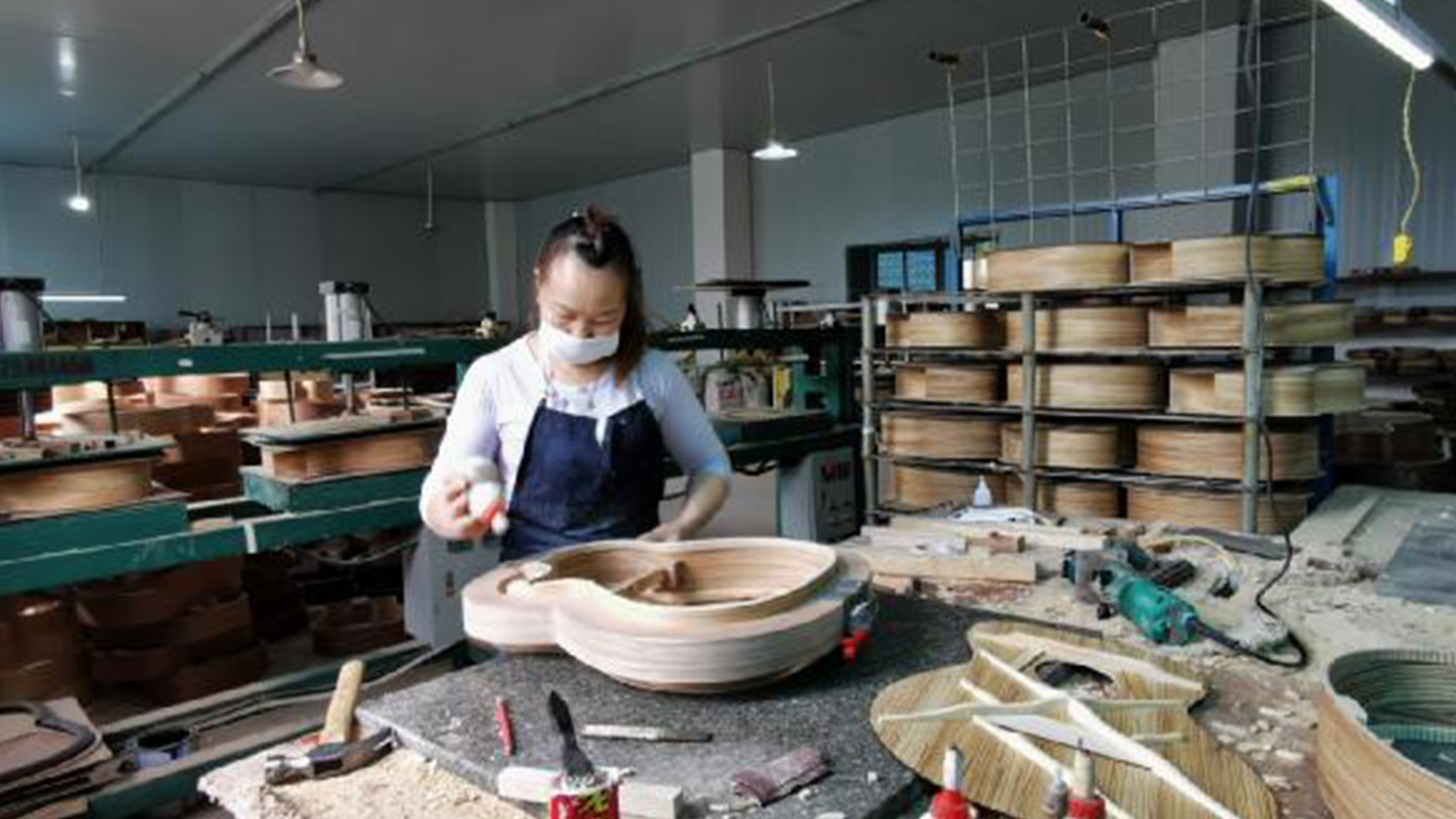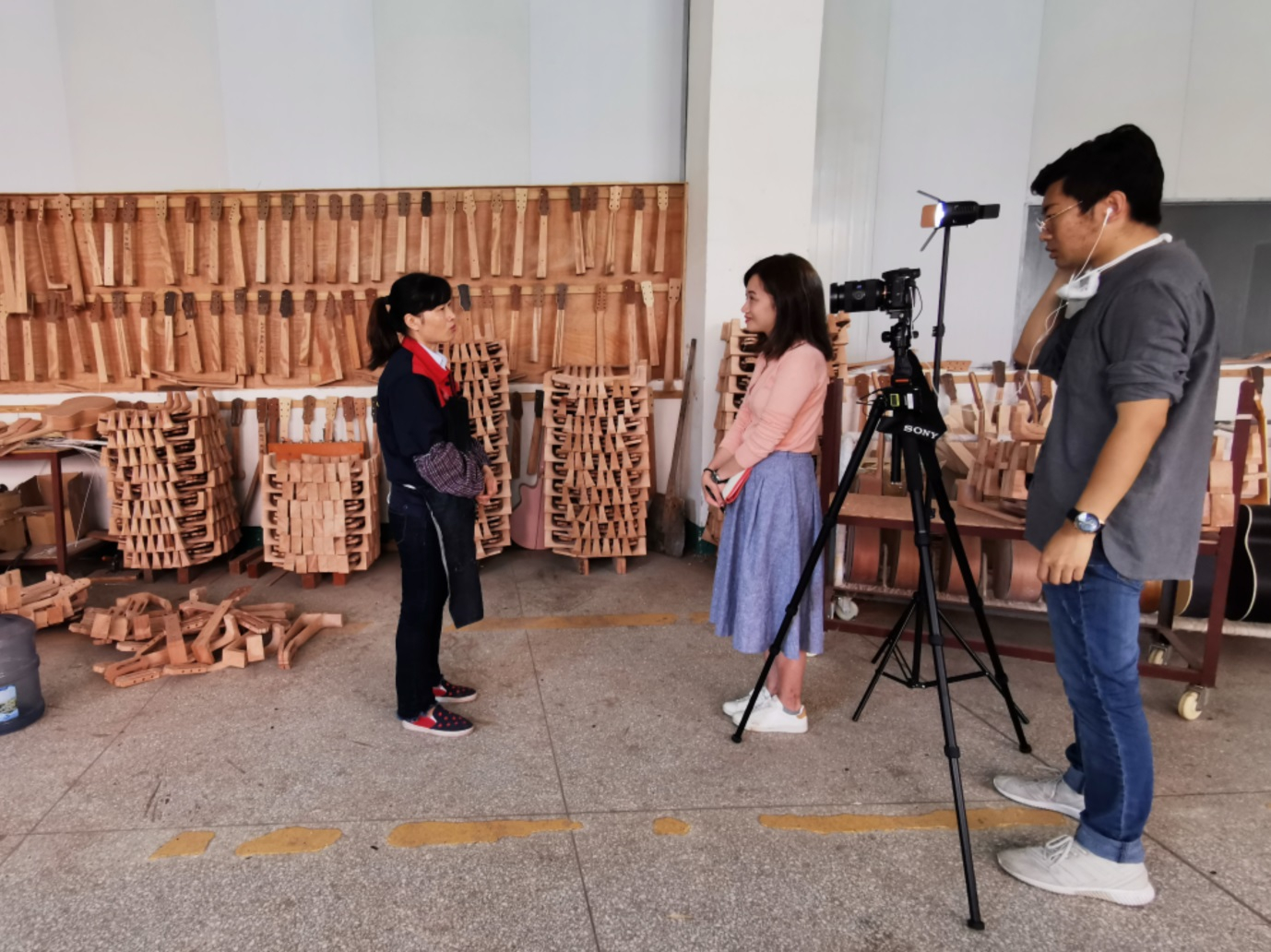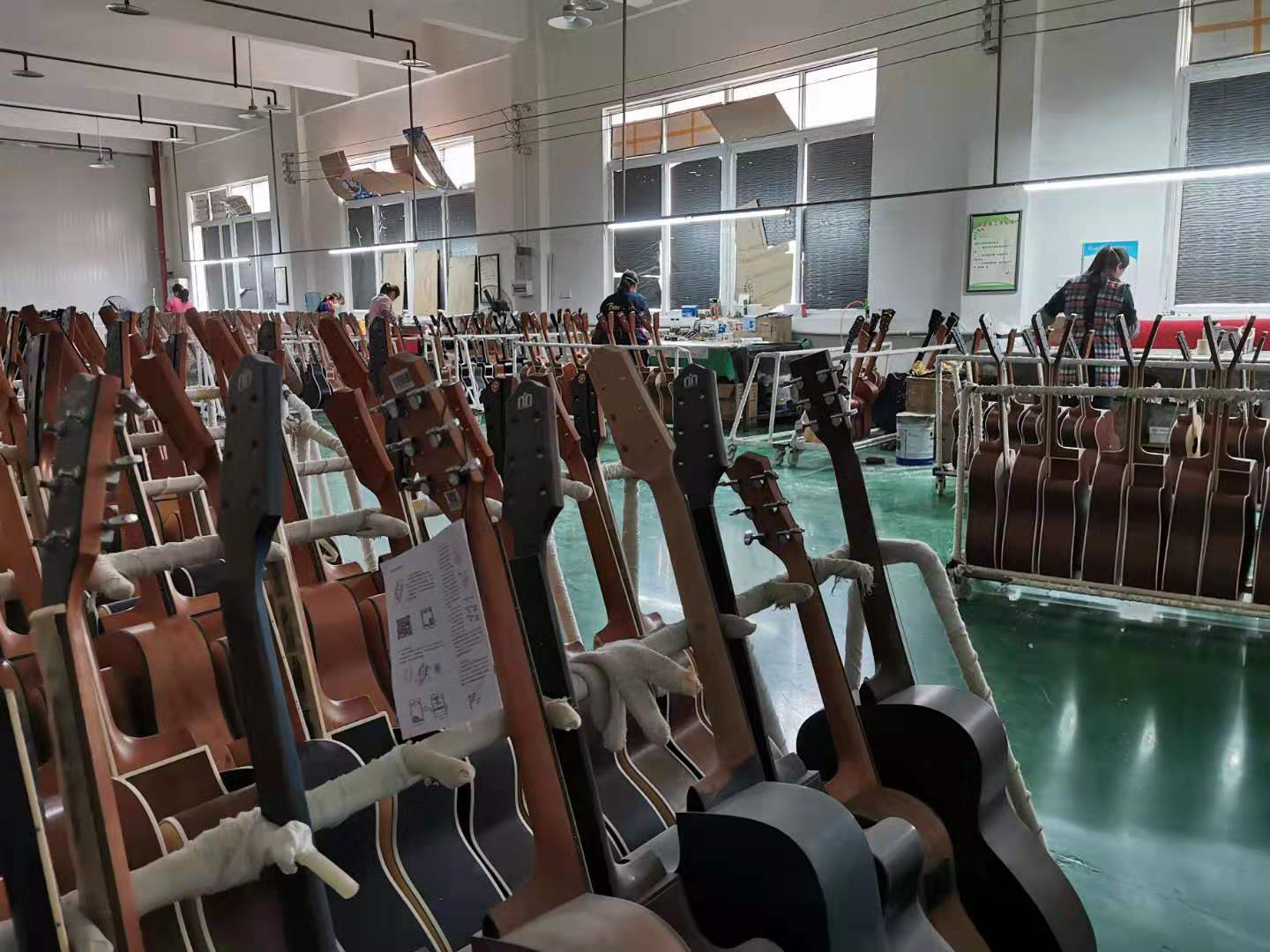

Zheng'an in China's southwestern Guizhou Province is known to be a deeply impoverished agricultural county, and many of its people head out to seek employment, according to Meng Xi, the deputy secretary of the Party working committee at the Zheng'an Economic Development Zone.
But the county's thriving guitar industry, although only six years in the making, is slowly changing this phenomenon.
"The guitar industry has created more than 14,000 jobs and lifted over 6,000 people out of poverty," Meng told CGTN.
"At the same time, we have also promoted social harmony, as many of the 300 women who left their children and elderly in the past years have now made their way back," he added.
To complement these income-generating jobs, a relocation program has also seen almost 15,000 people from over 3,000 households relocated to new and safer homes, Meng said.
"Among them, 425 of them work in our guitar industrial park. With an average monthly per capita income at 3,500 (yuan), one worker can lift a family out of poverty completely," said the deputy secretary.

Meng Xi talks to a CGTN reporter about how the guitar industry in the county has helped improve many locals' lives. /CGTN Photo
Being closer to home
At Zunyi Shenqu Musical Instruments Manufacturing, the first and biggest guitar factory in the county, many of the women are the sole breadwinners of their families.
Zheng Pinghui was living in poverty until she joined Zunyi Shenqu over four years ago.
"I did not have a stable income in the past and relied on odd jobs. My two kids are still attending school while my husband is ill. Life was very tough. My salary is now about 4,000 yuan a month, which is enough to support my family," Zheng said.
Zheng's role in the factory makes up just a few of the roughly 200 steps in making a guitar. She operates a laser machine, carving out the brand names on the guitar's headstocks, as well as inspects the length and shape of the guitar necks.
"I can 'quality check' up to hundreds of guitars a day. We are very strict when it comes to quality, those that don't make it to our standards will get thrown away," she said.

Women make up 60 percent of Zunyi Shenqu's workforce, and many are the sole breadwinners of their families. /CGTN Photo
For Gu Xu, the biggest benefit of working at the guitar factory is the ability to be close to her family.
She was previously in Zhejiang Province working in an embroidery factory with higher pay. But there were sacrifices.
"Conditions used to be very poor for my family. We were farmers. But now life is much better. I can take care of my two children and parents here," Gu said, adding that her family is relying on her sole income now, as her husband is off-work temporarily because of injures in his hands.
Women make up 60 percent of this factory's nearly-700 workforce. But poverty hits every facet of society.
20-year-old Zheng Lin taught himself how to design guitars and is grateful for his job.
"Without this job, I would have been in Guangdong or elsewhere working. I won't be able to accompany my parents then. With my income and my dad's odd jobs, we both try to help reduce the burden of our family," said Lin.

Zheng'an county in Guizhou Province makes up one-third of China's total guitar exports. /CGTN Photo
Still a labor-driven industry
In 2018, about 40 million guitars were produced worldwide, of which around 30 million were produced in China.
Zheng'an County produced six million units, accounting for about one-fifth of the national output and one-seventh of the global output.
According to Zheng Chuanjiu, head of Zunyi Shenqu Musical Instruments Manufacturing, guitar making will still be a labor-driven industry in the near future.
"In the next three to five years, machines will still need people to operate. Machines can help to make our products more standardized and accurate, (but) they won't replace human labor," said Zheng. "In fact, with machines, we will be able to increase the volume of our guitars at quicker pace."

Zunyi Shenqu Musical Instruments Manufacturing is a pioneer among dozens of guitar-manufacturing companies in Zheng'an County. /CGTN Photo
Zheng relocated his guitar-making facility from Guangdong Province to his hometown in Zheng'an, after having worked in a guitar factory with his brother in Guangzhou.
In 2013, Zheng took up the local government's call and preferential policies to help boost jobs and lift locals out of poverty.
"We plan to produce more of our own brands of guitars in the future, to improve our value-added products, such that the higher price we charge our customers is able to cover the increase in labor costs," said Zheng.

Copyright © 2018 CGTN. Beijing ICP prepared NO.16065310-3
Copyright © 2018 CGTN. Beijing ICP prepared NO.16065310-3